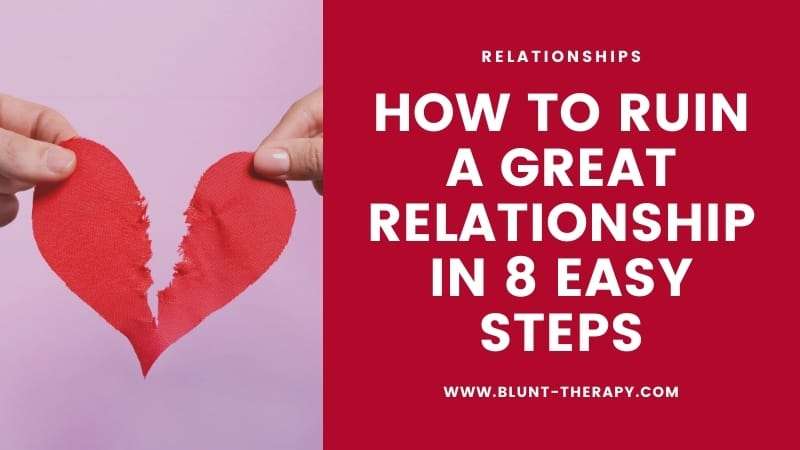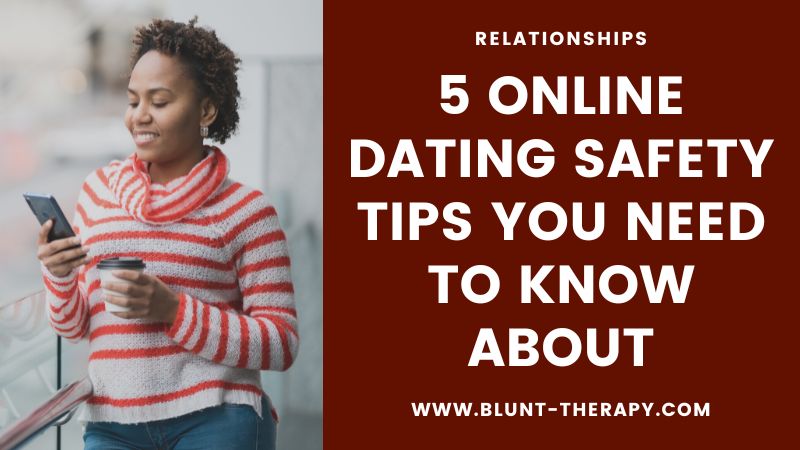Table of Contents
Affiliate link notice: As an affiliate of BetterHelp and other third-party vendors, We will receive compensation if you make a purchase using the links provided on this page. For more information, visit our disclosure page.
Last Updated on December 12, 2021 by Randy Withers, LCMHC
These days, the word “toxic” gets thrown around like confetti. Anything that someone disagrees with gets labeled as toxic. As a result, that term has lost all meaning.
It can be hard to recognize toxic relationship traits, especially when you’re in love.
Most of us were never taught how to be a good partner, let alone how to recognize the warning signs of an unhealthy relationship.
So, we learn as we go. Our relationship experiences consist of trial and error.

9 Common Toxic Relationship Traits
A toxic relationship is defined by a pervasive and harmful pattern of abuse. Perpetrated by one or both partners, it is marked by deceit, selfishness, jealousy, and desire for control.
Often there is still love present in toxic relationships and this is where things start to get messy. It can be much harder to recognize toxic relationship traits when there is still love.
To help identify whether a relationship is toxic, be on the lookout for the following signs.
1. Jealousy
It’s normal to be jealous of others from time to time. Habitual jealousy, though, is a toxic relationship trait you should never ignore.
Does your partner fly into a rage when you talk to anyone else? Do they belittle your accomplishments or discourage you from spending time with your friends? Those are all textbook examples of jealousy.
Eventually, you will end up hiding your happiness, just to avoid upsetting your partner. A relationship marked by fear is not one you should continue.
2. Narcissistic behaviors
Narcissism is characterized by an inflated sense of importance, a sense of entitlement, and a lack of empathy, among other criteria.
A narcissist is often very charming. That’s why people fall for them.
However, once you have settled into the relationship, the cracks start to form in their façade. They may start to pick on you and belittle you. And in an argument, they may never want to reach an agreement – instead insisting they are always right.
Narcissists often gaslight their partners. They do this with false accusations and by twisting your words. Their behaviors will make you question reality.
Gaslighting is a form of manipulation and emotional abuse. If you are experiencing any forms of narcissistic abuse – leave the relationship.
3. Your needs are ignored
Your needs are not negotiable. Your needs are needs. That’s why they are called “needs”.
Whether you need affection, quality time, personal space, or time with a friend – your partner doesn’t get to decide what you do and do not need. You do.
A good partner will cater to your needs. A bad partner ignores them.
4. Constant stress
Toxic relationship traits are torture to endure. Constant stress is a natural symptom of a relationship that has turned sour.
Stress takes a toll on both your mental and physical health. If you have reached the point where you are constantly feeling stressed about your relationship, it may be time to let go.
5. Controlling Behaviors
Are there certain activities you are not allowed to take part in, or people you don’t see because your partner forbids it? This is a violation of your independence.
Being in a relationship does not mean that you surrender your right to make decisions. You’re not a child. You don’t deserve to be treated like one.
6. Holding on to the past
Does your partner like to bring up past indiscretions?
It’s one thing to learn from mistakes. It’s another thing to weaponize them.
Abusers love to use guilt as an instrument of control. Perhaps you messed up in the past. Perhaps your partner knows you feel guilty about it.
But if your partner habitually uses your past against you, it’s time to put your relationship out to pasture.
7. Blaming others
If your partner blames others for what is going wrong in their life, they will never grow. Whether they blame you, their family, their boss, or their friends, it’s a toxic and corrosive behavior.
We all need to realize that there will always be external factors. But how we live our lives is solely our own decision. And our own responsibility.
For a relationship to succeed both parties need to own their problems and commit to working on them. If they don’t, the relationship will suffer.
8. You can’t be yourself around your partner
Do you feel more like yourself when you are alone? Do you hide your true self around your partner?
Everyone makes small changes to their personality based on who they are with. But it’s unhealthy to feel like you have to hide your true self from your partner.
9. Dishonesty and lack of trust
Once trust is lost it is difficult to regain.
Toxic behaviors like cheating and dishonesty make trust in a relationship impossible. Dishonest behaviors are instant dealbreakers in healthy relationships. In toxic relationships, they are standard.
If this describes you or your partner, it’s time to make a change. There is no such thing as a healthy relationship if it does not involve trust.
Final Thoughts
Recognizing toxic relationship traits is the first step in removing yourself from one. It is often hard to do. Nobody likes to admit that a relationship is failing.
But toxic relationships are hazardous to your physical and mental health. You have to take steps to protect yourself.
If your partner is willing to work on these issues, consider couples counseling with a mental health professional. If they refuse to admit there is a problem, the relationship won’t survive.
References
- Is Your Relationship Toxic?
- How To Tell If You’re In a Toxic Relationship — And What To Do About It
- 5 Signs of a Toxic Relationship









